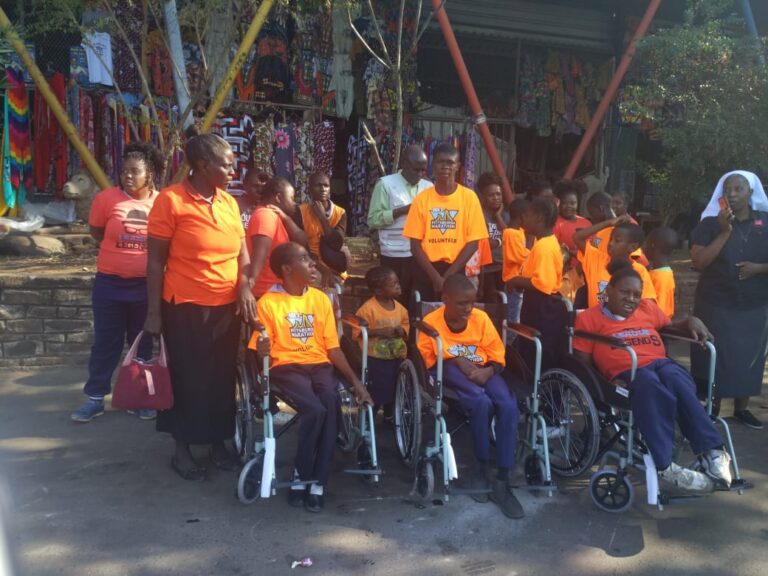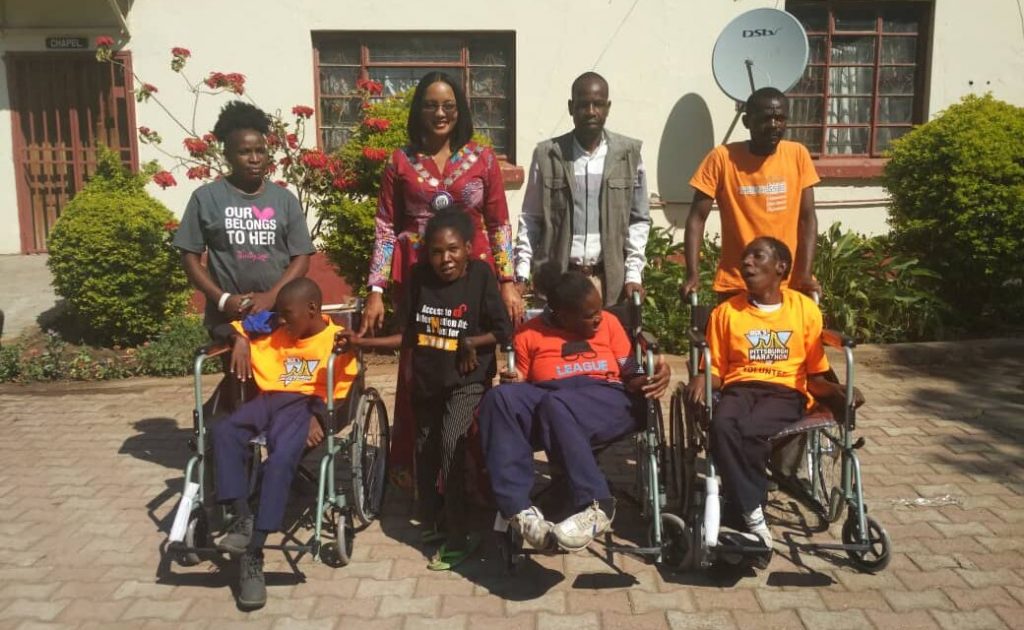Disability Inclusion
We believe in disability inclusion, a deliberate effort which each individual, organization or government have to take. Disability inclusion is the practice of ensuring that people with disabilities have equal access to opportunities, rights, and participation in all aspects of society. It involves recognizing the diverse abilities and talents of individuals with disabilities and taking proactive steps to remove barriers to their full participation. Discrimination of persons with disabilities not only undermines their right but also impedes growth of the society. Person with disabilities face many barriers despite their talents and skills. Some of the barriers include:
- Attitudinal barriers: This is where a person with disability fails to access a public service such the attitude of health personnel at a health facility towards a women with a disability who wants to get safe plan or family planning pills, or access to ARVs. This makes them shun away from public health services.
- Language Barrier: In Zambia, we have very limited teachers, health practitioners, etc who understand sign language and be able to effectively communicate with them. It makes it difficult for them to relate even with their own communities. We sensitize communities about the need to work and relate with persons with disabilities because they will always be part of our family, community and the country at large. Through advocacy for inclusion of person with disabilities and working hand in hand with The Zambia Agency for Persons with Disabilities (ZAPD), we have managed to get many enrolled in various skills discipline at Livingstone Institute of Business and Engineering Studies (LIBES). We have also helped enroll children with disabilities in a few inclusive schools around Livingstone.
- Infrastructural barriers: Accessibility: One of the fundamental principles of disability inclusion is ensuring physical, social, and digital environments are accessible to people with disabilities. This includes providing wheelchair ramps, accessible transportation, sign language interpreters and other assistive devices. Most of the modern buildings are still not inclusive of persons with disabilities and this infringes on their rights tom movements.
Equitable opportunities: Disability inclusion involves providing equitable opportunities for education, employment, healthcare, and social participation. This may require reasonable accommodations, such as flexible work arrangements, assistive technologies, and accessible learning materials, to ensure that people with disabilities can fully engage in these areas.
Empowerment: Disability inclusion promotes the empowerment of people with disabilities by recognizing their rights, abilities, and contributions to society. It involves supporting self-advocacy, leadership development, and decision-making processes that directly affect their lives.
Awareness and education: Disability inclusion requires raising awareness about disability rights, combating stigma and discrimination, and promoting understanding of the diversity of disabilities. Education and training programs can help increase knowledge and sensitivity among individuals and organizations.
Collaboration and partnerships: Disability inclusion is a collective effort that involves collaboration among governments, civil society organizations, businesses, and communities. Building partnerships and networks can help share resources, best practices, and expertise to advance disability inclusion initiatives.in this vein; we work with Zambia Agency for Persons with Disabilities, Ministry of Community Development and Social Services. Under MCDSS, we help them register for social cash transfer and emergency relief in times of drought.
Policy and legal frameworks: strong policy and legal frameworks that protect the rights of people with disabilities and promote their inclusion in all aspects of society support Disability inclusion. This includes legislation such as the United Nations Convention on the Rights of Persons with Disabilities (CRPD) globally.



